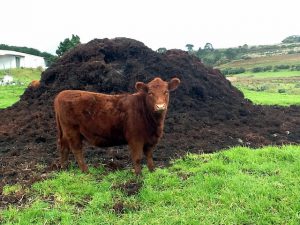Manure and compost are important for organic production, and farmers need more information to improve their use with produce safety compliance
 Photo Credit: Ian Barbour
Photo Credit: Ian Barbour
A recent study in Frontiers In Sustainable Food Systems found that as many organic farmers rely on manure as a tool to manage soil fertility, they have a strong need for more research to develop feasible strategies to reduce food safety risks associated with their use. Organic practices, particularly the use of untreated manure and manure that is composted for short periods of time, play an important role in improving the quality of soil for crop production. To reduce the risk of contaminating fresh produce with foodborne pathogens, there are strict rules that require long waiting periods between the application of applying raw manure to the soil and harvesting the crop. However, there is little science-based data to confirm that the long waiting periods are indeed needed to reduce food safety risks. These wait times can be burdensome and even inhibit certain crop rotations that would otherwise incorporate crops that mature very quickly. This study helps prioritize research and outreach aimed at improving food safety for organic vegetable, fruit, and nut growers who use manure-based inputs or incorporate livestock or rotational grazing into their cropping systems.



